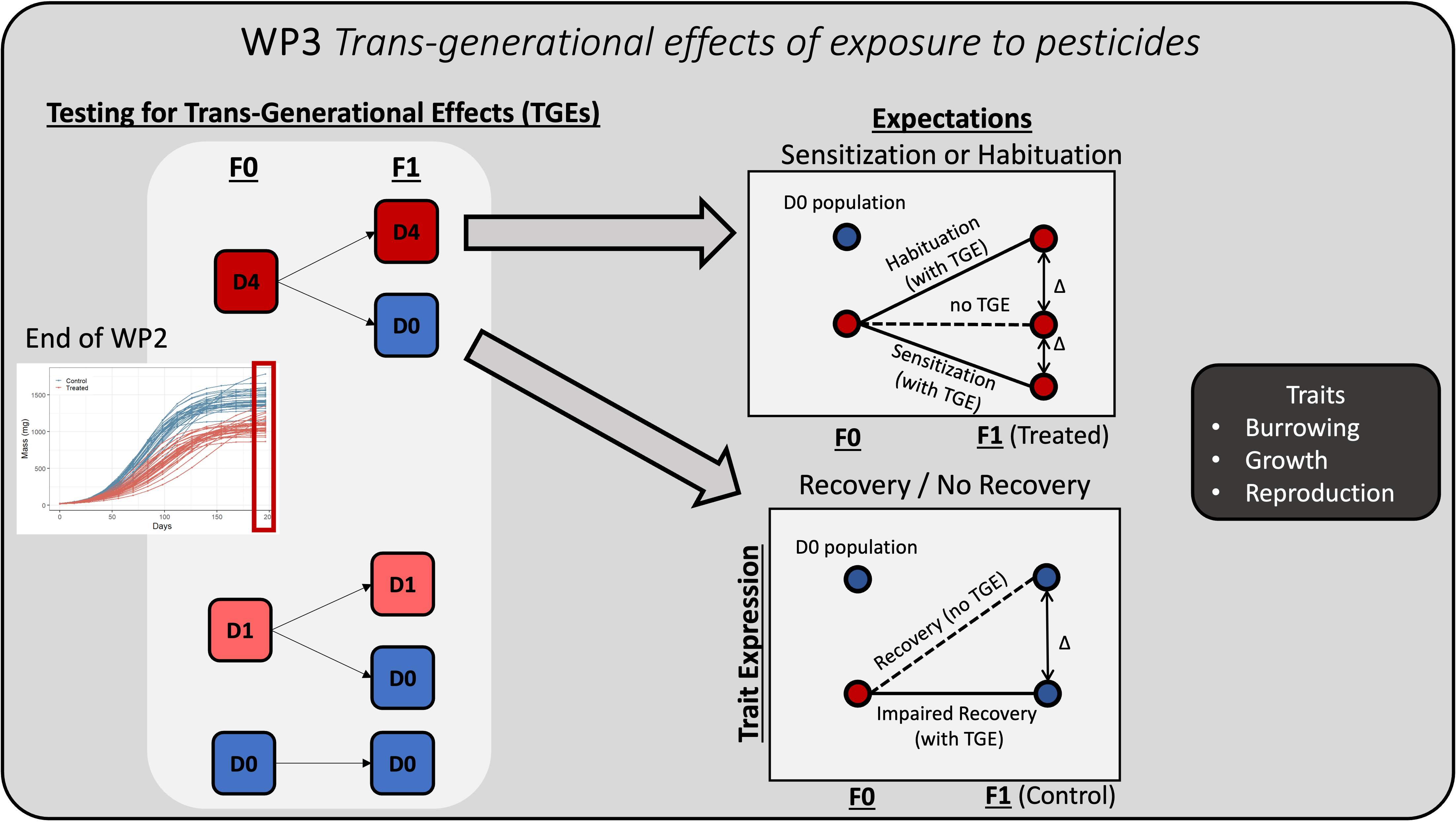WP3: Transgenerational effects of exposure to pesticides
Rationale: Because adaptation to pesticides can occur through several mechanisms, it is important to consider alternative explanations for observed patterns of population differences in the field. One such mechanism is transgenerational plasticity, i.e., how offspring phenotypes may change as a result of parental past experience with pesticide exposure. Such effects have been demonstrated in vertebrates exposed to fungicides but have yet to be tested in soil organisms alongside other micro-evolutionary processes such as selection. Specifically, offspring may differ from the parent generation either because they no longer recover their baseline phenotypic expression (recovery impairment) or because they become habituated or sensitized to pesticide exposure. In addition, while the genes pathways for tolerance to pesticides are beginning to be identified in earthworms, the rate of change in these pathways across generations remains unresolved.
Approach: Following WP2, we will raise the next generation of earthworms in presence/absence of pesticides using a full factorial design. F1 Earthworms from the exposed groups will be randomly split into an exposed group with the same dose combination as their parents or a control group. We will track the same phenotypes as in WP2. Using the bioenergetic model developed in WP2, we will determine whether the effects of pesticide exposure are retained in the next generation of earthworms even when the mixture is no longer present in the environment. This WP will give precious results on the long-term effects of pesticide exposure.

